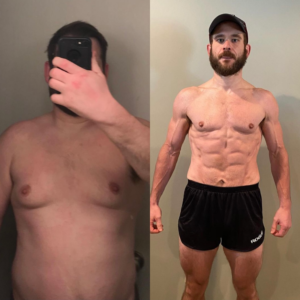
10 Mar Top 4 Mental Benefits Of Exercise
Everyone knows that exercise improves your fitness, but the impact on your mental well-being is often overlooked. Let’s explore the top 4 mental benefits of exercise, and then create the optimal training program to help you reach peak performance.
The Top 4 Mental Benefits Of Exercise

Better Brain Performance
Regular exercise has been shown to improve your memory, ability to think and how you handle stressful situations. Improving these traits allow you to accel in other areas of your life such as at work and in the relationships in your life.
Why: Improved hormonal function (primarily a better response to cortisol and insulin sensitivity), increased oxygen and blood flow to the brain (in the prefrontal cortex and hippocampus areas), increased neural connections, and other reasons that we’ll list below. (1, 2)
Increased Focus and Motivation
Regularly performing challenging exercise will help you focus considerably stronger and longer. It increases creativity, energy and motivation. It also prevents cognitive decline and keeps you sharp as you age. (3, 4, 5, 6)
Take it from Virgin Airlines creator and entrepreneur Richard Branson, who says, “I definitely can achieve twice as much by keeping fit.” (7)
Why: Training at or above the 70% of max heart rate ranges challenges the brain to make the adaptations mentioned, although cognitive improvements can be experienced with more moderate exercise. For example, yoga has been shown to have incredible mental benefits, but it makes improvements in different ways than the heart rate elevated examples in the cited studies. Regardless, training should be performed at least 3 days a week to reap the benefits.
Better Mood
Quality exercise will make you feel happier, more optimistic and stress less. It will simultaneously reduce feelings of anxiety and depression.
If done in the right gym or group setting, it will lead to being part of a community of like-minded individuals. They can help motivate you to keep training, make it more fun and provided a sense of belonging. (8)
When you graduate from general exercise to training with intent, you’ll feel a sense of accomplishment from the progress that you’ve made.
Why: Training increases the neurotransmitters dopamine, norepinephrine and serotonin, which drives focus, motivation and happiness. (9) Plus, exercising regularly provides a feeling of constant progress. As Tony Robbins once said “Progress equals happiness.”
More Confidence
General exercise can definitely lead to an increase in confidence (10). But when you’re on a training program that is designed to reach a specific goal (such as getting leaner, stronger, improved endurance and sculpting your body), it should deliver those results in time.
This is especially true when you take the time to set specific health and fitness goals and what you need to do in order to achieve them (11). We suggest doing this monthly to always keep it top of mind.
The mental practice of regularly setting goals, challenging yourself each workout, and achieving them is extremely impactful. This will not only help you achieve your health and fitness goals, but also create a skill that you can use in other areas of your life.
Plus, people are significantly more confident when they look and feel how they want. These changes can only be achieved from smart training, nutrition and lifestyle habits.
Why: Because people who set specific and challenging goals are 90% more likely to hit them than people who set generic goals (or none at all…). Hitting goals builds confidence and has transferrable value into other personal and professional achievements. Plus, being healthy and fit makes you look and feel great about yourself as the linked studies have shown.
The Optimal Training Program For Mental Health

- Training 3-5 days a week
- Make sure to set a realistic goal that fits your lifestyle and doesn’t create unnecessary time constraints and stress. Ex: working out 5 days a week isn’t always more effective than 3 or 4.
- Training at least 30 minutes, at an average of 70% of max heart rate, for at least 3 days a week
- We suggest using a heart rate monitor for objective feedback and to push yourself. Training examples include running, cycling, strength training with short rest periods or Metabolic Conditioning circuits. For our MyZone users, this translates to 90+ MEPs in a workout (we suggest 100+ per workout).
- Perform strength training exercises each week that you track and progress regularly
- This will challenge your muscles, body and mind uniquely to provide other physical and mental benefits. Ex: increased weights, reps, etc
- Remember: More isn’t always better
- Training longer than 60 minutes or exercising with high intensities for more than 4-5 days a week. When people say they “exercise” for 30 minutes a day, they’re usually talking about walking, swimming, hiking and other moderate activities a few days a week. This is an excellent idea, but not essential to derive the optimal mental benefits from training.
Said in another way…
Don’t let perfect get in the way of good enough.
Get in the habit of training regularly, and then progress to a plan like the one suggested above. This will provide the most impactful physical and mental benefits of exercise.
Stacking some wins under your belt could lead to making progress like our athlete Walter who lost 20% body fat and dramatically increased his strength in just 1 year:

Or our athlete Molly who lost 50 lbs and 12% body fat to make an incredible transformation in only 1 year:

Would you like help getting leaner, stronger and improving your mental performance?
Then check out our Group Personal Training program, which was developed to deliver the fastest results that science allows.
Click the picture below to learn more.

